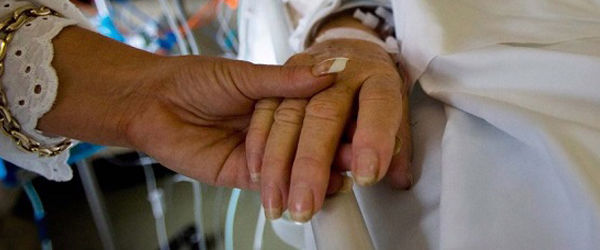It’s no secret that many young people are practicing their Catholic faith differently than previous generations — how often they attend Mass, how often they receive the sacraments of penance and Communion, how (or if) they engage in the life of the parish. Nor is it a secret that some are moving away from the Catholic Church, perhaps to another denomination or faith, perhaps to no church at all. We can’t expect or hope this will change on its own, and that they will someday all come flooding back to us. And we have to acknowledge there is no easy answer on how to draw them back into the church of their youth. Faith and affiliation with a community based on that faith is a complex and lifelong development. However, it is important to address what is happening and make some positive changes for the sake of our young people as well as our Church.Hospitality is vitally important in the process of attracting people of any age to the Church. And while hospitality is not an end in itself but a means to an end — in this case, sharing the good news of Jesus Christ — perhaps it is worth considering as a method of outreach to both young adults and young families.A small first step might be to assess the sacramental process in your parish — notably, marriage and baptism, those that young people and young families are more likely to require — and how or if those processes are presented in a spirit of welcome and joy. If young people find a Church that is genuinely excited for them when they choose to marry and to bring their children into the faith, there will be progress in moving beyond hospitality to the beginning of the sharing of faith. I have a vision of a young couple, maybe one or even both of them less than active in practicing their faith, who decide to be married in the Catholic Church, wanting to fulfill the requirements, and the parish response is so welcoming and affirming that the couple is drawn to participate in the life of the parish after the wedding. The same vision holds for baptizing a child, which always brings to mind the ancient image of a mother and father bringing their baby to the Temple for a blessing. These are monumental steps in the life of a family and deserve responses of welcome from the parish.No doubt this is recognized at many parishes, but sometimes the rules and rubrics of the process seem to take precedence over the sacrament itself. If young people find a Church that is genuinely excited and for them when they choose to marry and to bring their children into the faith, there will be progress in moving beyond hospitality to the beginning of the sharing of faith.Certainly, the rules and guidelines are important and have legitimate purposes (a welcoming spirit does not mean, in the context of receiving sacraments, “You can do whatever you want”). But we cannot let the rules become more important than the couple or family coming to the church, or else hospitality goes out the door, likely followed by the couple or family themselves. Rather than declare, “These are the rules, and if you don’t like them, tough,” it is much more hospitable to suggest, “Yes, there are rules, but here is why the rules are in place, and here is how, guided by these rules, we can help you celebrate this sacrament not just ‘legally’ but joyfully.”Baptism and wedding coordinators, who are often the face of the Church to those seeking these sacraments, have a special responsibility, and theirs is not always an easy task. These ministers, very often volunteers, need training, support and affirmation to serve with a Christ-like spirit of invitation and welcome. My family has celebrated a year of baptisms, we will soon celebrate a wedding, and this spring my youngest daughter-in-law was received into the Catholic Church. In each case it was faith and a desire to belong to a community of faith that brought and is bringing each of these events to fruition. However, the practice of the faith is unique to each individual involved. How the current 25- to 35-year-old practices the Catholic faith does not always match the expectations of years past. For some this is a dilemma, but for others it is an opportunity to recognize the seed of faith and carefully nurture it. I am grateful for those who have done so.Practicing genuine hospitality and welcome is a simple, but easily implemented, first step for drawing young adults and families into the Church and parish life. From here, we address the issues that affect their lives and their spirituality. Those steps are not quite so simple, but they are made easier by the implementation of step one. Anne Hansen is a member of the Camarillo Catholic community and regional director for Ignatian Volunteer Corps Los Angeles. Her e-mail address is [email protected].

